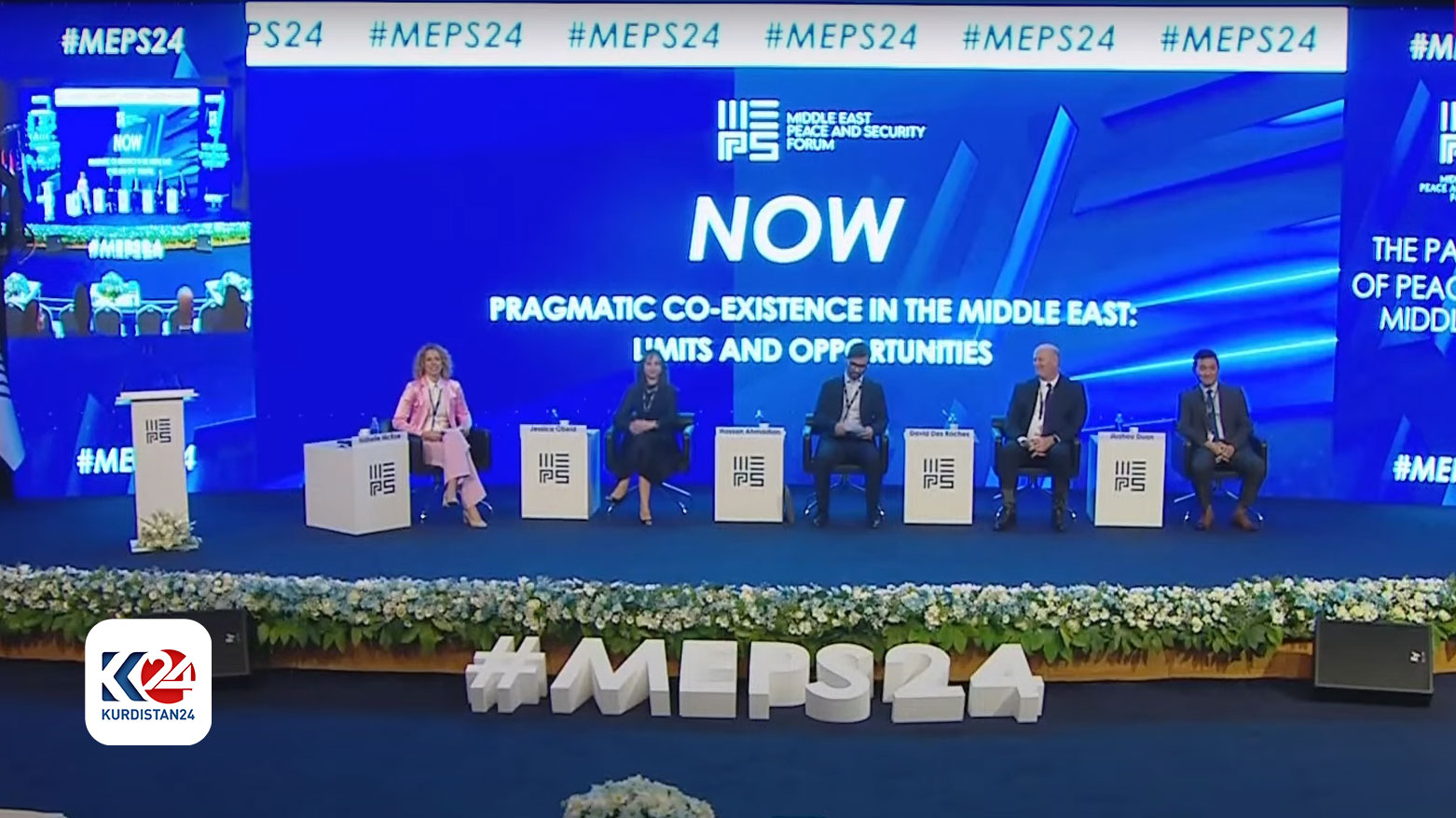Experts discuss pragmatic co-existence in the Middle East: balancing trust, agency, global dynamics
“We are in a moment of hopefulness,” Dr. David Des Roches of the National Defense University declared, noting the potential for political changes in Iran and the broader Middle East.

Nov. 23, 2024
ERBIL (Kurdistan24) — The third session of MEPS24, titled “Pragmatic Co-Existence in the Middle East: Limits and Opportunities,” brought together scholars and experts to analyze the challenges and potential pathways to fostering coexistence in the region.
Trust and Regional Agency
Dr. Hassan Ahmadian from the University of Tehran identified mistrust as a fundamental issue in the Middle East, stemming from long-standing imbalances.
“Regional actors must address imbalances to achieve coexistence,” he noted, advocating for a more inclusive and balanced regional approach.
He emphasized the importance of regional agency and inclusivity, stating that local solutions are crucial for lasting peace.
Hope Amidst Challenges
Dr. David Des Roches of the National Defense University expressed optimism about the prospects for reform and coexistence in the region.
“We are in a moment of hopefulness,” he declared, noting the potential for political changes in Iran and the broader Middle East.
Addressing the role of international leaders, he remarked, “Only Trump can secure a lasting peace,” highlighting the former U.S. president's unique influence on peace efforts during his tenure.
Global Dynamics and Co-Existence
Dr. Jiuzhou Duan from Tsinghua University in China shifted the conversation to the global stage, asserting that coexistence in the Middle East is intertwined with relations between major powers like the U.S. and China.
“We can’t talk about coexistence in the Middle East without addressing coexistence between the U.S. and China,” he remarked.
He drew parallels between regional conflicts and the Cold War, emphasizing China’s interest in the Middle Eastern market and its role in shaping the region's future.
Towards a Balanced Approach
As the session progressed, speakers converged on the idea that pragmatic coexistence requires a multifaceted approach, balancing regional agency, global power dynamics, and trust-building efforts. The discussion underscored both the limits and opportunities of achieving harmony in a region marked by complex historical and geopolitical challenges.
The forum continues to serve as a platform for fostering dialogue and exploring innovative solutions for peace and coexistence in the Middle East.